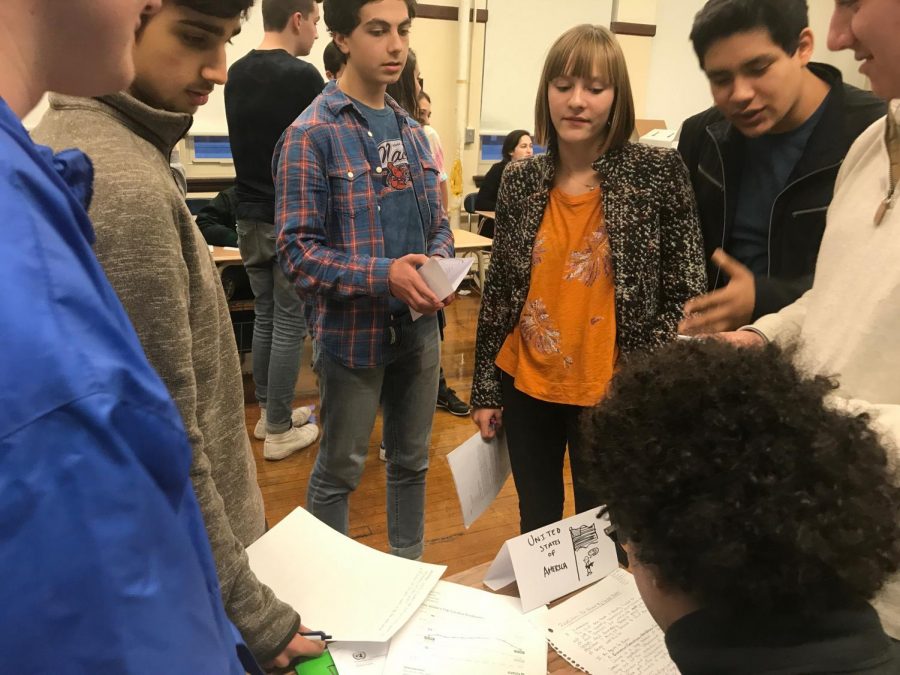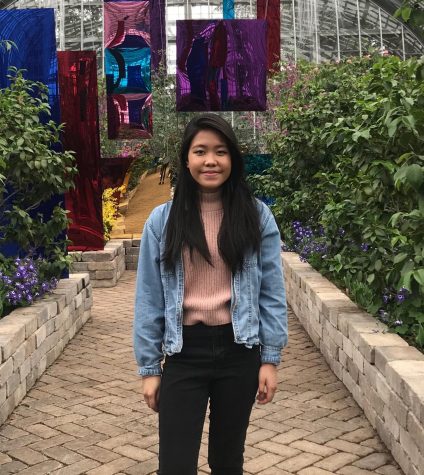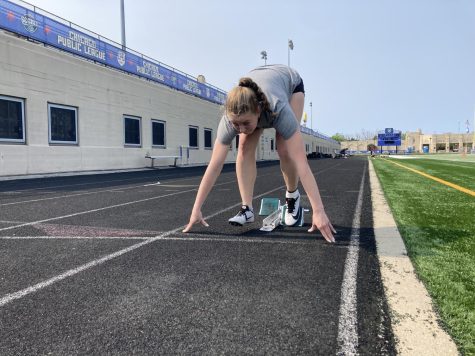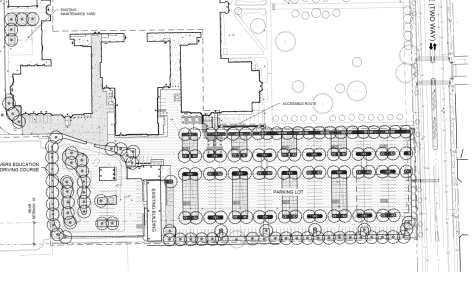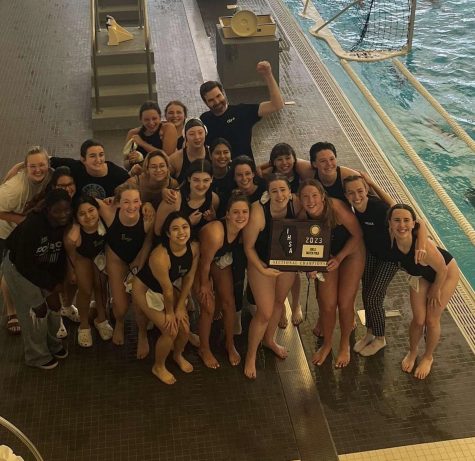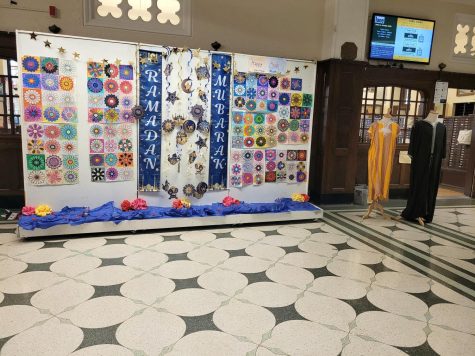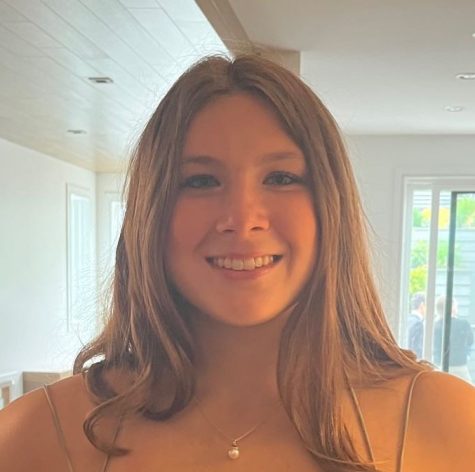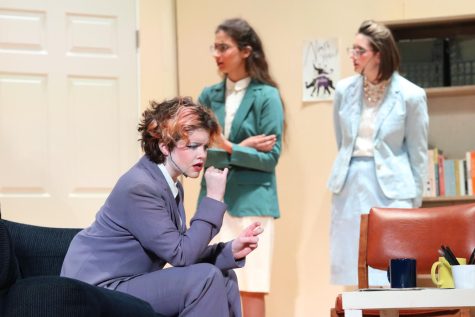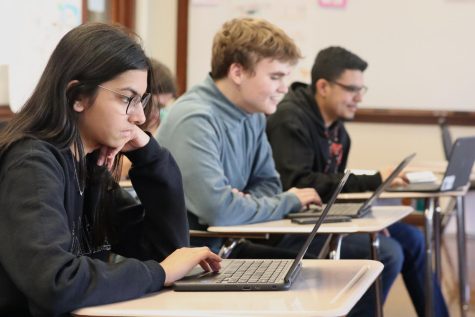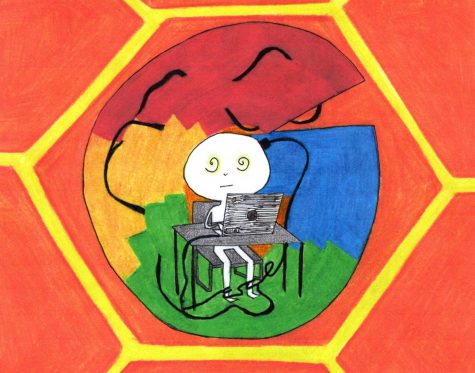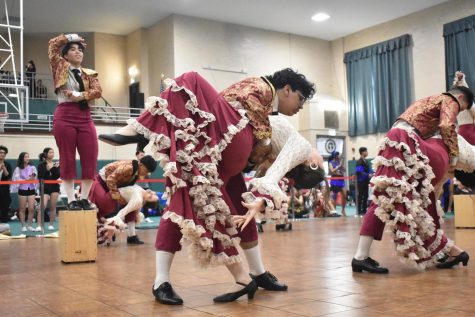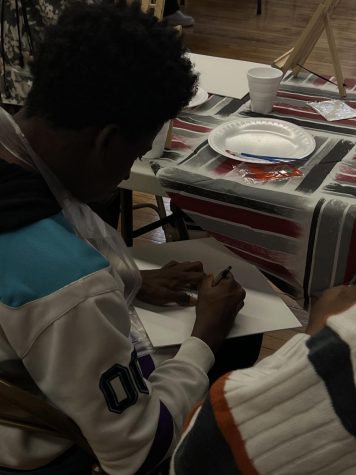New club, Model UN, attends its first conference
Model UN members, roleplaying as country delegates, write a resolution on the global drug trade during their meeting on Nov. 29 in preparation for their next conference on Jan. 27 at Francis Parker School.
January 8, 2018
After a month of preparation that involved doing heavy research on the global affairs of Italy and Egypt, 26 students represented Lane at its first Model UN conference at St. Ignatius on Nov. 4 by spending eight hours attempting to come to a resolution on the issues like climate change and the refugee crisis.
“It was so intimidating,” said Josie Blumenthal, Div. 983. “I went up to speak and I was shaking after, but once you get the hang of it, it’s not that hard. You’ve just got to trust yourself.”
Model UN is a new club in which students roleplay as delegates from different countries and attend conferences that simulate real United Nation meetings.
The club was created in late April by club president Matthew Migely, Div. 883, with the support of Mr. Maslanka and Mr. Locke, who both serve as the club’s sponsors.
“After the first conference, you definitely feel proud of yourself and proud of what the club represents,” Migely said. “I’m really glad that I kept on pushing with it.”
One month prior to a conference, schools are given the countries they will represent. The club then separates its members into different committees which are assigned various issues. For instance, being put in the security council committee means delegates will cover topics like ISIS and North Korea.
During the conference, students prepare position papers on the given country’s stance on the issues and present them to the rest of the countries in their committee, said David Cano, Div. 871, Model UN vice president and press secretary.
The ultimate goal of the conference is to work with other countries to write a resolution that addresses the given issue or topic.
Awards were given during the conference based on factors such as how often a student participates, the quality of their participation and whether they take part in writing a resolution, Cano said.
“It’s kind of strange in the sense that the activity calls for collaboration — that’s the purpose of the UN, [to] resolve conflict — but you want to be the best at resolving so you have to focus on your speaking skills, you need to have the best research, you need to be writing resolutions, so all of those things that contribute to winning,” Locke said.
While Lane wasn’t able to place during the conference, Locke said the club will be better prepared for the next one on Jan. 27 at Francis Parker School since they can build off the skills they’ve learned preparing for the first conference.
“The adjustment is in the preparation,” Locke said. “Now we can focus more on soft skills like, how to get resolutions passed, how to make sure your name is on a piece of work, how to be a better speaker.”
In preparation for their first conference, the club focused exclusively on research, some going as far as reading and annotating 50-100 pages of material and gathering information from the CIA World FactBook.
During these conferences, there are also many specific terms that Model UN members are expected to use like, “decorum” and “motion for a five minute unmoderated caucus,” Migely said.
Blumenthal said she found the first conference to be surprising since many of the other students from schools with previous experience seemed very comfortable and eloquent when they spoke.
“There’s so many new terms they used,” Blumenthal said. “It just scared me because everybody knew what they were doing, except me.”
However, she said she had fun attending the conference and since then, she has a better understanding of the rules.
As a Model UN sponsor, Locke is able to draw from his previous experience in Model UN during college and as a current coach for Lane’s debate team.
Locke said that while debate is more combative, the research, speaking and organizational skills can still be applied to Model UN.
“You get a little bit of everything,” Locke said. “You get a certain level of acting, reading in-depth nonfiction articles and laying out your argument — being able to advocate for yourself.”
During the meetings following their first conference, members reflected on their experience in preparation for their next one. On Nov. 29, the club conducted a practice conference in which members were assigned different countries to discuss the topic of the illegal drug trade.
Members provided positive feedback and constructive criticism as students, role playing as their country, presented their position position papers. The students collaborated on writing resolutions, in which delegates from North Korea and the U.S. were able to compromise on a resolution about the world drug trade.
“You can be a real go-getter and be competitive and be very successful in that way, or if you’re more of a timid person and you want to speak a little bit and you want to push that boundary for yourself [and] you see yourself growing as person, you have that option,” Locke said.
Blumenthal said she initially joined Model UN to improve her public speaking skills and she has noticed a difference from before she joined the club in that she is able to talk more smoothly and has gained more confidence in herself.
“It involves a lot of cooperation with people with kids from different schools you’ve never interacted [with], so you have to have good communication skills,” Migely said. “It really forces you to integrate your knowledge of the geopolitical world with people skills.”
Correction: The print December issue of the Warrior included a typo of Matthew Migely’s name.

